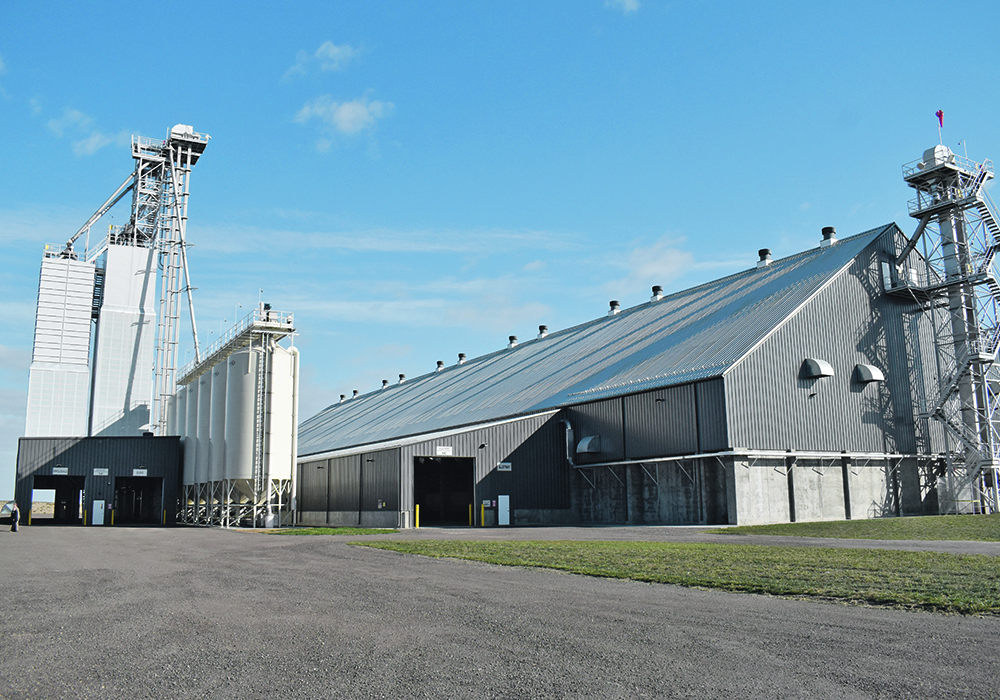Alta. municipal leader welcomes more emphasis on irrigation but decries loss of economic development at cabinet level
The removal of rural economic development as a distinct entity at the ministerial level within the cabinet of new Alberta premier Danielle Smith is a mistake, said an expert at the University of Lethbridge.
Although most of the province’s population lives in urban areas, much of its economic activity ranging from agriculture and tourism to oil and gas takes place in rural Alberta, said Lars Hallstrom, director of the university’s Prentice Institute for Global Population and Economy.
Rural economic challenges and solutions were addressed under former Premier Jason Kenney’s government by Agriculture, Forestry and Rural Economic Development, said Hallstrom. Although the ministry is still headed by Nate Horner, it has been renamed Alberta Agriculture and Irrigation, with forestry moved to the new ministry of Forestry, Parks and Tourism under Todd Loewen.
Read Also

Anti-separatist movement targets rural Alberta
Former deputy premier Thomas Lukaszuk’s anti-separatism Alberta Forever Canada petition campaign expects to run full steam ahead into the province’s farming regions
Smith won a leadership race Oct. 6 to replace Kenney as premier and leader of the United Conservative Party (UCP). Her new 27-member cabinet, supported by 11 parliamentary secretaries, was sworn in Oct. 24.
Rural economic development is a “real challenge for all Canadian provinces and territories as well as for the federal government,” said Hallstrom. “So, long story short, yes, I would say leaving a rural development ministry out of the portfolio — without knowing what the rationale behind the cabinet structuring was — is a mistake.”
It has likely been decades since irrigation has been included with agriculture as a single ministry, said Paul McLauchlin, president of the Rural Municipalities of Alberta. Although he saw it as a positive move for regions such as southern Alberta, where many farmers rely on irrigation, he said rural economic development for the province as a whole “has been broken into a bunch of little, tiny pieces,” even if they are still housed somewhere in the provincial government.
It will make it harder for rural economic development authorities to shepherd projects to completion, he said.
“So, our job in rural Alberta as well as the ag industry is to make those connections between these multiple ministers and ensure that we still have a voice at the table.”
McLauchlin said rural municipalities are confused about a resolution that was approved at the UCP’s recent annual general meeting. Although the provincial government does not have to act on such resolutions, party members want to require municipal employees and politicians to register as lobbyists if they deal with provincial officials.
Rural municipalities see themselves as democratically elected partners of the provincial government, not private lobbyists out for personal or organizational gain, said McLauchlin.
They fear it could create “a divide where there doesn’t need to be one because you’re putting in a piece of red tape,” he said. “You’re limiting access, and we want to have free and open and transparent government, and we want to be able to chat and get things done.”
However, the provincial government is creating an economic development plan for rural Alberta, said Horner in an email Oct. 27. It will be based on insights gained through rural consultation during the past year, and contain key strategies and measurable actions to ensure rural people have economic opportunities where they live, he said.
“Alberta’s United Conservative government includes MLAs representing nearly every rural constituency across the province, 11 cabinet ministers from rural Alberta, and our Premier Danielle Smith is currently running in a rural byelection to represent Brooks-Medicine Hat. Creating jobs and attracting investment to rural Alberta remains a priority for this government because these are the communities that our members and our families call home.”
However, Hallstrom said rural economic development across a province as geographically and regionally diverse as Alberta is too complex to be achieved piecemeal through individual representatives. It requires co-ordinating the efforts of many sectors of government, he said.
There needs to be a distinct political space in the provincial government with the administrative clout to apply a consistent rural lens to such issues, said Hallstrom. Alberta lacked a rural economic development minister for almost 10 years until Horner was appointed as an associate minister on July 8, 2021.
He became minister of agriculture, forestry, and rural economic development following the resignation Nov. 5, 2021, of Devin Dreeshen.
Horner said recent provincial investments in broadband, healthcare and infrastructure demonstrate the government’s commitment to rural communities.
















